Conversations With Koreans: How many bowls of tteokguk have you eaten?
Last Updated on December 20, 2024
Happy Seollal, or Lunar New Year! 새해복 많이 받으세요. It is the Lunar New Year in Korea and people around the country will be eating tteokguk. If you’ve learned Korean or are learning Korean, this is a great time to learn a little saying that relates to tteokguk. Tteokguk is a rice cake soup that is a must eat this holiday in Korea and it also relates to your age… you’ll see.
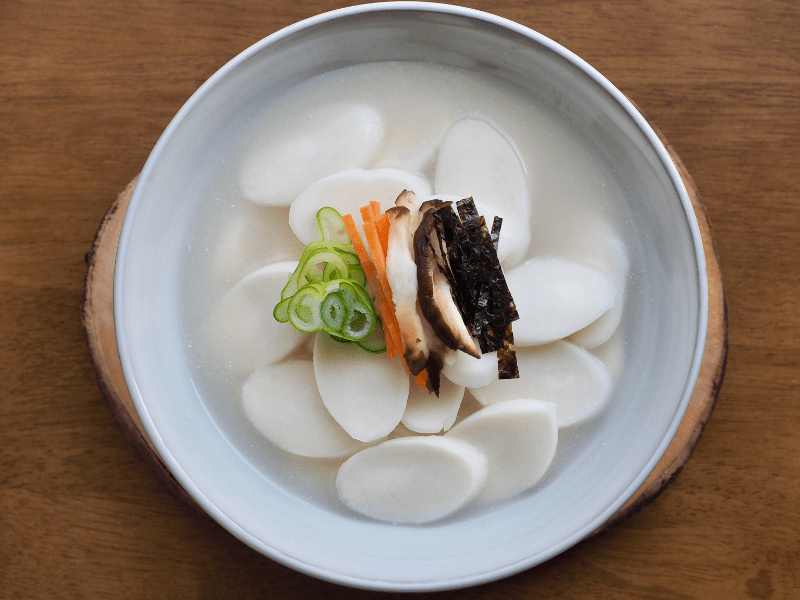
(This post contains affiliate links, which means I receive a certain percentage of a sale if you purchase after clicking. Thank you for your support.)
Whether or not families across the country will be celebrating in the traditional fashion of bowing before an altar table in order to pay respect to their ancestors tomorrow, they will, no doubt, eat tteokguk (떡국). The white broth representing purity with circular shaped slices of rice cake resembling coins to signify wealth and prosperity topped with kim (seawood) and julienned cooked eggs is eaten on Seollal just as turkey is eaten on Thanksgiving in the States.
Northern tteokguks may use beef as the base for the broth, whereas my southern mother uses oyster in hers. But, no matter which recipe is used, once the dish is eaten it signifies the addition of one year onto the age of the diner.
“In order to get one year older, you must eat your tteokguk,” so the saying goes.
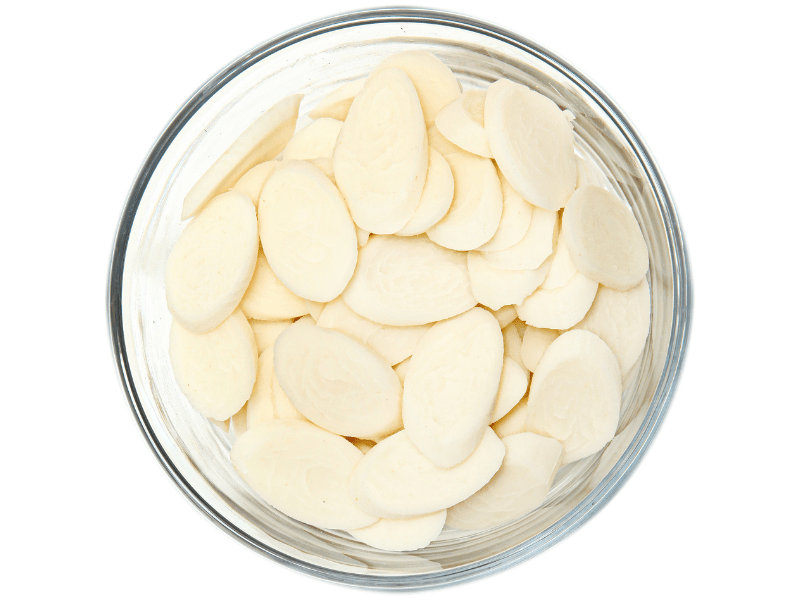
Not only is tomorrow the Lunar New Year, but it is also the day that everyone across the country ages one year. This can be a confusing topic to many westerners that come here. Age, one of the top three questions asked of you upon meeting someone new here, though seemingly an easy question to answer, can cause issues one never thought possible. In Korea, when you are born, you are considered to be 1 as the time from conception to birth is counted.
Fun Fact: There are delicious regional varieties of Korean rice cake soup that use everything from seaweed to chicken instead of the more standard beef broth.
Unfortunately, it’s not just as simple as adding one year onto your age though. Since everyone’s age changes on the Lunar New Year, a child that was born in say September and is 1 upon birth would be considered 2 just five months later in February on the Lunar New Year. This means his western age would be 5 months when his Korean age would be 2 years.
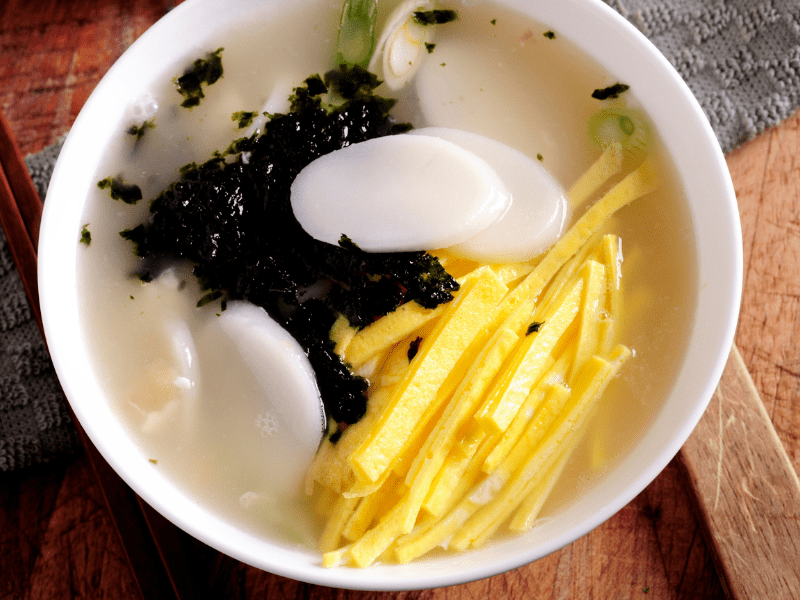
The reason age is important is that it allows people to establish basic relationship and conversational etiquette and so it is commonly asked during introductory conversations in Korea. While asking age is a bit taboo in the west and may be even considered rude.
In Korea, it’s just a matter of time before this question is put forth in order to establish a pecking order of sorts. This also determines if you can be “friends” with someone in Korea.
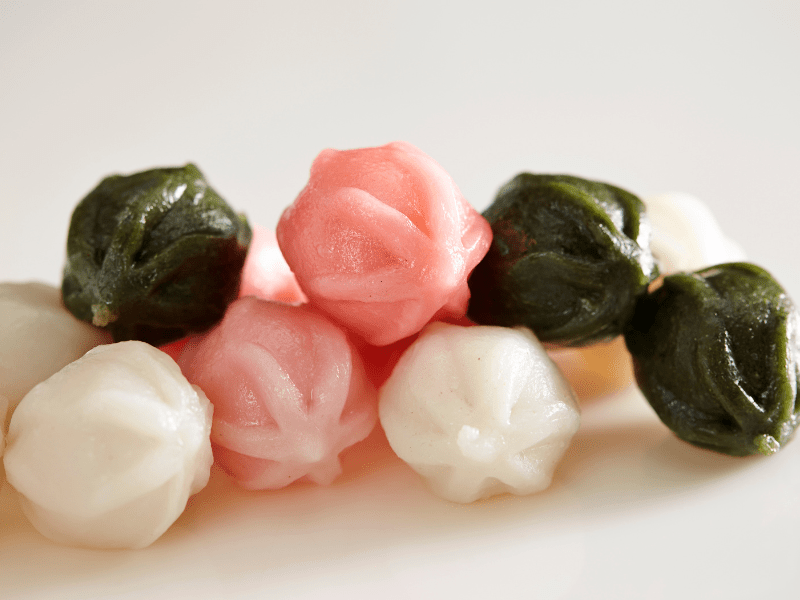
I personally teach my students to ask those that are not Korean, “What year were you born?” instead of, “How old are you?” because obviously how old I think I am is not how old my Korean friends think I am and so going with the year can lessen the awkward conversation that goes along with age at times.
How old are you?
I’m 29.
I’m 29 too! You were born in 1983 too?
No, I was born in 1984.
Oh.. then you’re 30.
No, I’m 29. I’m definitely not 30 yet. My birthday isn’t until April. I have a couple months still.
Hm? No, you’re 30 and today you’re turning 31. It’s Seollal.
Well, I’m definitely not 31. That’s for sure. I’m 29.
Okay…
Okay, you go ahead and think I’m 30 or 31 and I’ll go ahead and think that I’m 29. Okay?
Okay.
Yes, clearly I don’t want to be 31 before my time, or even 30 for that matter. Let’s just keep age hush hush. This example of a conversation could be made much easier if the more common question became, “What year were you born?”. I tend to answer the, “how old are you?” question with my year of birth now anyway.
What year were you born?
1984. You?
1983.
Cool.
Yeah.
It is said, though by who I’m not sure, that there is a common question on Seollal to ask someone’s age in a different fashion. In order to gain a year one must finish their tteokguk so, on Seollal one may ask:
“How many bowls of tteokguk have you eaten?”
“떡국얼마나 먹었어요?”
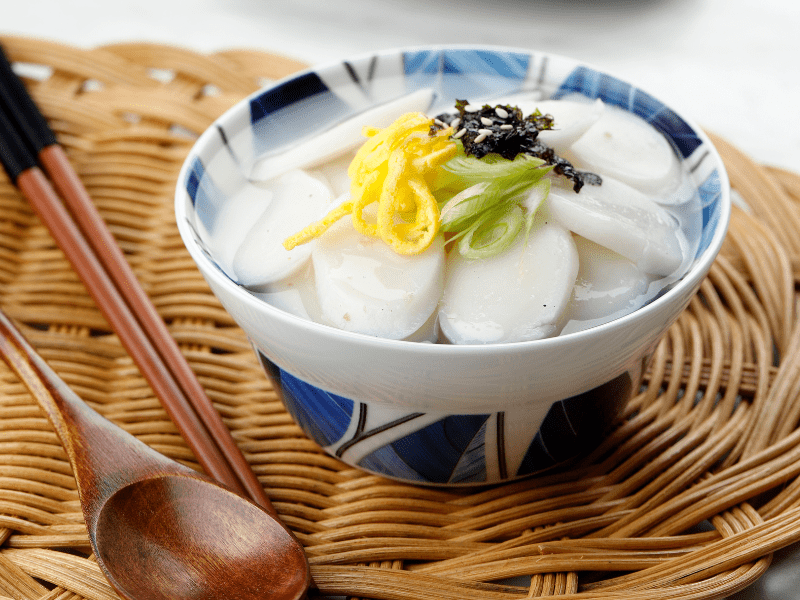
I wonder if this is more of a cute story to tell rather than an actual question asked though as when I asked my husband he said, “One. Why would I eat more than one?” I explained that I meant it as in “how old are you?” and he said that was silly. Do Koreans really ask how old you are this way on Seollal, or is it all a tale we tell our children… and foreigners? I’m not sure. But go ahead and try it and see what happens.
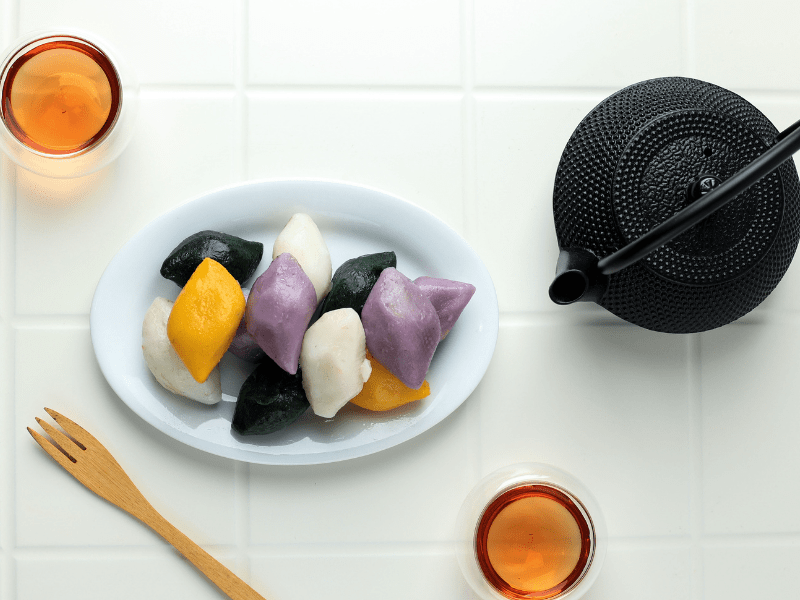
Along with the saying, “they” say that children will gleefully try to eat more than one bowl of tteokguk to grow older faster while older women will try not to eat any at all in order to stay the same age. I think it’s all a tale we weave, but it’s fun and what holidays and traditions don’t have tales that we weave? If you want to learn some more, here are some funny Korean words or phrases to put into your convo.
If you’re learning Korean, check out 90 Day Korean. It’s a great online program that has tons of information with a no nonsense approach. Most people fail to learn Korean because the materials are not fun, aren’t useful in everyday life, lack clear explanations and their methods don’t stick.
90 Day Korean will let you progress at your own pace but their teachers and mentors will keep you pushing toward a target. Definitely a great program if you want to learn more sentences like the one I just talked about above.
Did you like this post? Pin iT!
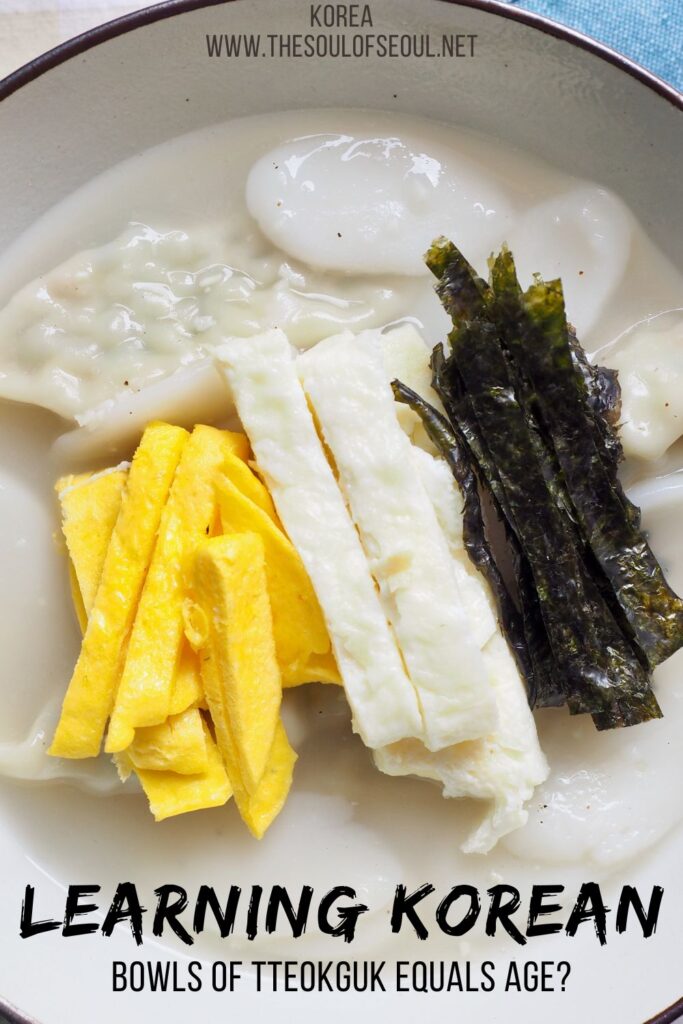
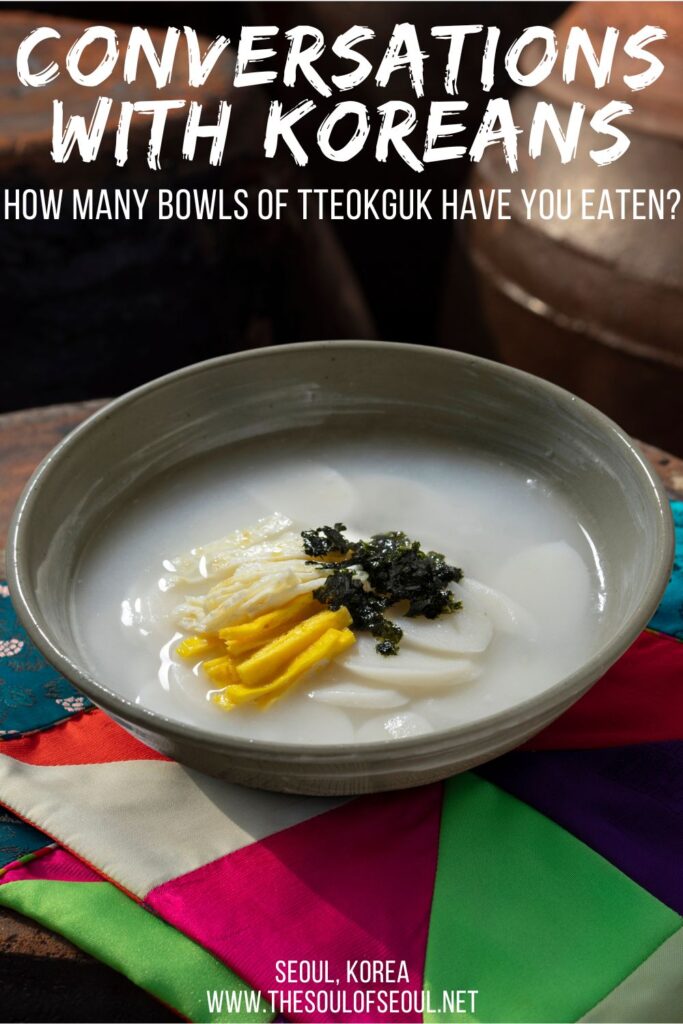


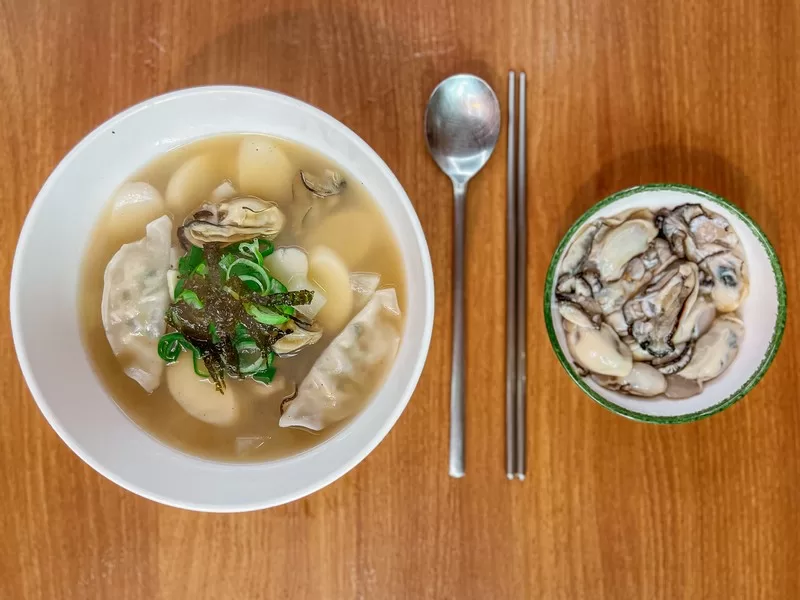

2 Comments
Shelley @Travel-Stained
None. Will it prevent me from getting older?? 😉 You around this weekend?
Hallie
We are around this weekend and yes you won’t age if you just don’t eat the tteokguk. Amazing, huh?